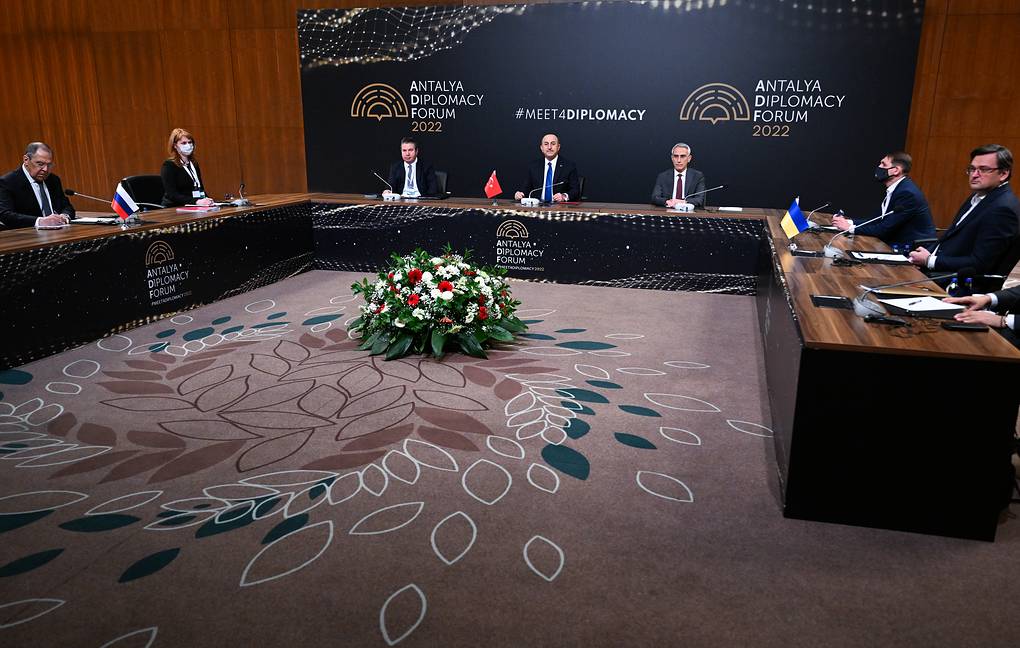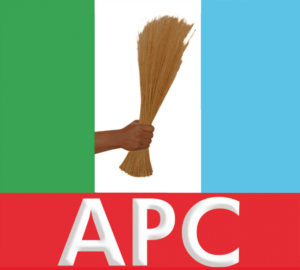Press review: Turkey-hosted Russia-Ukraine talks come up empty and sanctions to backfire

Top stories from the Russian press on Friday, March 11th
Nezavisimaya Gazeta: Brussels to redraw energy supplies map
Versailles is hosting an EU summit on Thursday and Friday. The leaders of European countries are deliberating over the new reality that they and their citizens are living in as a result of the developments in Ukraine. The issues will include the changes in the energy market suppliers, the possible accession of Ukraine and other Eastern European countries to the EU and the upcoming changes to European security structure and the functioning of the European Union as a whole. However, the summit’s participants stressed that before the end of the Ukrainian conflict, it was too early to talk about making specific decisions, Nezavisimaya Gazeta writes.
The European Union may change as a result of the current developments. Changes are expected both in the structure of the continent-wide bloc and in its composition, the newspaper writes. The statements by French Secretary of State for European Affairs Clement Beaune added to the intrigue of the summit. He seemingly confirmed that in a few years, Ukraine could already join the EU, and in addition to it, Georgia and Moldova.

The prospects for EU expansion are becoming more and more obvious,” Associate Professor of the Department of Integration Processes at MGIMO Alexander Tevdoy-Burmuli said. However, the expert told Nezavisimaya Gazeta, that so far, decisions are unlikely to be made, since the Russia-Ukraine conflict is far from over and its consequences are not yet fully understood. Meanwhile, the likely option is that Ukraine will join the EU, but will refuse to join NATO. But so far it all looks speculative. “To talk about European security without Russia’s participation is still absurd,” he believes.
In addition to the EU’s fate, an important issue of the summit is the discussion of new sanctions against Russia. Specifically, the European Union will discuss the extent of exports restrictions of Russian energy resources.
Vedomosti: Russian, Ukrainian top diplomats meet, fail to reach truce
Russian Foreign Minister Sergey Lavrov and his Ukrainian counterpart Dmitry Kuleba met in Antalya for the first time since the start of Russia’s special military operation in Ukraine, with Turkish Foreign Minister Mevlut Cavusoglu acting as a mediator. The talks failed to bring any meaningful progress in resolving the crisis, Vedomosti writes.
According to Lavrov, the Turkish-hosted negotiations resulted from Russia’s desire to communicate on the issues fundamental to the current crisis. But Moscow, according to him, intends to hold talks only with “added value”, without replacing “the main negotiating track on Belarusian territory”. “Today’s conversation has confirmed that this track has no alternative,” Lavrov said.
The negotiations between the Russians and Ukrainians at the moment can only touch upon evacuation corridors and the prevention of a very likely humanitarian and economic catastrophe in Ukraine, Dmitry Ofitserov-Belsky, a senior researcher at the Institute of World Economy and International Relations, explained when speaking to Vedomosti. The looming calamity in question is very likely due to the possibility of the planting season being disrupted, as well as countrywide logistical and infrastructural dilemmas emerging due to the events of recent weeks, the expert said.
Ofitserov-Belsky believes that Moscow expects other countries to join the contacts on larger issues that could bring about an end to the conflict, in particular those related to guarantees of its own security. These issues, which the Russian leadership deems as vital, include stopping NATO’s eastward expansion, and rolling back its military infrastructure to the boundaries of 1997, the expert recalled. Moscow continues to view Kiev, supported by all Western countries, as being under “external control” and is ready to resolve only momentary humanitarian issues with it, the expert believes.
Izvestia: Western sanctions against Russia bound to ricochet, says diplomat
Russia is a serious participant in global economic relations, and the sanctions against it will boomerang on those who introduced these punitive measures, Russia’s Deputy Minister of Foreign Affairs Alexander Pankin said in an interview with Izvestia. The diplomat also noted that Russia’s allies in Eurasia would also feel the heat. Moreover, every possible attempt would be made way to pull away Moscow’s closest partners. However, it is unlikely that anyone will be able to replace Russia in the EAEU’s markets.
The US-led Western restrictions against Russia have impacted Moscow’s closest allies and partners in Eurasia, Pankin noted. “Of course, these sanctions against Russia won’t just ricochet, they’ll come down on our allies, our closest economic and trade partners in the Eurasian space, like a sledgehammer. And the topic of sanctions and their relief has been on our Eurasian agenda for a long time,” he said.
“Clearly, Russia’s dilemmas will have reverberations for our partners as well. But we are tied to each other, we have a whole list of strategic areas of cooperation relating to all major areas of economic life: energy security, food security, measures in the field of digitalization and transport connectivity. Therefore, we are deeply connected with each other, but we are not foisting ties on each other, this is economic expediency,” he added.
According to him, Russia’s pivot to Eurasia “was inevitable.” That said, regarding Eurasia, Moscow grasps this as not only Eurasian Economic Union members, but also the wider space of the Asia-Pacific Region, Pankin said.
The diplomat noted that Russia will take retaliatory measures against unfriendly countries. “But at the same time, we try to be moderately pragmatic, not to cause irreparable damage to ourselves, as some of our counterparties do,” he said.
Kommersant: Russia reveals intention of not participating in Council of Europe
The Russian Foreign Ministry said on Thursday that Russia no longer intends to participate in the Council of Europe, and accused the European Union and NATO of destroying this organization. Although the Foreign Ministry did not directly announce Russia’s withdrawal from the Council of Europe, the Federation Council already expects appropriate actions from the authorities “as soon as possible.” Experts told Kommersant they believe that the Foreign Ministry’s statement has no legal significance, and pointed out that Russia’s pullout from the international organization should take place within the framework of a legally set procedure.
The reason for this statement was the decision taken at the end of February by the Committee of Ministers of the Council of Europe to suspend Russia’s membership in this organization. Russian Foreign Ministry Spokeswoman Maria Zakharova then vowed that Moscow would decide on further steps regarding this issue.
“The Foreign Ministry is threatening the Council of Europe, but legally it does not oblige Russia to do anything,” MGIMO associate professor Ilya Rachkov told the newspaper. The withdrawal procedure needs a federal law on the denunciation of the Charter of the Council of Europe and the European Convention on Human Rights, head of the international practice of the Agora Group Kirill Koroteev explained.
“The decision is made by the president, and the denunciation is submitted to the State Duma, but I can assume that all factions will support it,” Head of the Russian delegation to the Parliamentary Assembly of the Council of Europe (PACE) Pyotr Tolstoy told Kommersant. He believes Russia’s withdrawal from the Council of Europe will not have a significant impact on the daily lives of Russians, because the norms of the Human Rights Convention have long been implemented in national legislation.
Nezavisimaya Gazeta: Striking back at transportation sabotage, Russia set to ban fertilizer exports
A new factor will spark hikes in world food prices, namely, a new ban on the export of fertilizers from Russia. Using this ban, Russian officials promise to respond to the sabotage of international transportation against Russia and Belarus due to the conflict in Ukraine, Nezavisimaya Gazeta writes. Some European companies have already stopped their fertilizer production due to abnormally high gas prices.
Foreign experts predict new surges in food prices against the backdrop of an aggravated shortage of fertilizers worldwide. In the event of a potassium and nitrogen deficiency, it will be more difficult for agricultural enterprises to grow most crops. Moreover, harvests will decline, experts warn.
The fact that Russia is already imposing restrictions on fertilizer exports to curb domestic fertilizer prices complicates the situation. Russia exports around 70% of the total volume of mineral fertilizers produced in the country.
Experts interviewed by Nezavisimaya Gazeta have no doubt that the situation on the mineral fertilizer market will have a negative impact on food prices. “High gas prices are forcing European producers of nitrogen fertilizers to stop production,” head of the Energy Development Center Kirill Melnikov said. The expert predicts further price hikes for nitrogen and potash fertilizers. “This will also affect food prices, because European farmers will have to buy more expensive fertilizers, primarily from the US,” he added.
TASS is not responsible for the material quoted in these press reviews
Source: TASS









